
Are you ready to take your gardening game to the next level? Look no further than organic potting soil for healthy plants. These nutrient-rich soil blends are the secret to robust and thriving greenery in your garden.
Organic potting soils provide the foundation for healthy plant growth, offering essential nutrients, natural soil amendments, and a sustainable gardening solution that benefits both your plants and the environment.
When it comes to organic gardening, soil fertility is key. Organic potting soils are packed with beneficial microbial activity, which enhances the overall health of your garden and promotes optimal plant nutrition.
With their natural composition and nutrient-rich properties, organic soils provide an ideal environment for your plants to flourish.
Key Takeaways:
- Organic potting soil is essential for healthy plant growth and sustainable gardening practices.
- Nutrient-rich soils provide the necessary foundation for robust and thriving greenery.
- Beneficial microbial activity in organic soils promotes soil health and plant nutrition.
- Using organic soils helps create a sustainable and environmentally friendly gardening solution.
- Organic soils offer a natural and chemical-free alternative to synthetic soil amendments.
How to Start an Organic Vegetable Garden
Starting an organic vegetable garden requires careful consideration of the soil conditions. Before planting, it is essential to conduct a soil test to identify any nutrient deficiencies or issues with compacted soil.
Compact soil can hinder root development and drainage, so it is crucial to loosen and aerate the soil to promote good soil tilth.
To create a healthy soil ecosystem, depth, proper nutrient levels, good drainage, and beneficial organisms are necessary. Adding organic matter, such as compost, to the soil can enhance its fertility and water retention capabilities.
Incorporating various organic materials like coffee grounds, banana peels, eggshells, shredded leaves, grass clippings, and wood ashes can contribute to the overall health of the soil.
When starting an organic vegetable garden, it is important to prioritize the health of the soil. By addressing soil conditions and focusing on creating a rich, nutrient-filled environment, gardeners can cultivate thriving organic gardens that produce abundant and healthy vegetables.
How to Start an Organic Vegetable Garden
Starting an organic vegetable garden requires careful consideration of the soil conditions: compacted soil, good soil tilth, sufficient depth, proper levels of nutrients, good drainage, and beneficial organisms.
Before planting, it is essential to conduct a soil test to identify any nutrient deficiencies or issues with compacted soil. Compact soil can hinder root development and drainage, so it is crucial to loosen and aerate the soil to promote good soil tilth.
When starting an organic vegetable garden, it is important to prioritize the health of the soil. By addressing soil conditions and focusing on creating a rich, nutrient-filled environment, gardeners can cultivate thriving organic gardens that produce abundant and healthy vegetables.
What’s the best organic potting soil mix for vegetable gardens?
When it comes to creating a thriving organic vegetable garden, choosing the right soil mix is crucial. The ideal organic soil mix for vegetable gardens will provide the necessary nutrients, support healthy plant growth, and promote optimal yields.
There is no one-size-fits-all solution, as the best organic soil mix can vary depending on factors such as soil pH and specific nutrient requirements of the plants.
To determine the best organic soil mix for your vegetable garden, it is important to first test the soil pH. This will help you identify any amendments needed to adjust the pH to the ideal range of 6.0 to 7.0.
For example, if your soil is too acidic, adding crushed limestone can help raise the pH, while peat moss can help lower the pH if the soil is too alkaline.
Organic amendments, such as compost, are essential for providing the necessary nutrients for plant growth. These amendments are rich in macronutrients like nitrogen, phosphorus, and potassium, as well as essential micronutrients like iron, manganese, and zinc.
Incorporating compost into the soil mix helps improve soil fertility and ensures that your plants have access to the nutrients they need.
| Organic Soil Amendments | Benefits |
|---|---|
| Compost | Improves soil fertility, enhances water retention, and introduces beneficial microorganisms. |
| Blood meal | High in nitrogen, promotes healthy leaf growth and green foliage. |
| Bone meal | Rich in phosphorus, supports root development and flowering. |
| Kelp meal | Provides trace minerals and growth hormones, stimulates plant growth. |
| Rock phosphate | Slow-release source of phosphorus, improves fruit and flower production. |
In addition to organic amendments, using a pre-mixed organic soil blend specifically designed for vegetable gardens can be a convenient option.
These commercial soil mixes are formulated with a balanced combination of organic matter, nutrients, and beneficial microorganisms. They are ready to use and can be mixed with your existing soil or used in raised beds.
In conclusion, selecting the best organic soil mix for your vegetable garden requires considering factors such as soil pH, nutrient requirements, and convenience.
By testing your soil, incorporating organic amendments like compost, and using pre-mixed organic soil blends, you can create an ideal growing environment for your vegetable plants and ensure healthy, bountiful harvests.
Benefits of Using Organic Soil
Using organic soil offers several benefits for your plants and the environment. Organic soil is environmentally friendly as it is made from natural ingredients and promotes soil sustainability. It is also nutrient-rich, providing essential elements for plant growth.
Organic soil has excellent water-retention properties, reducing the need for frequent irrigation. By using organic soil, you can enjoy the following benefits:
- Environmental friendly: Organic soil is made from natural ingredients, reducing the use of synthetic chemicals that can harm the environment.
- Nutrient-rich: Organic soil contains essential nutrients that plants need for healthy growth, ensuring that they have everything they need to thrive.
- Water retention: Organic soil has good water-holding capacity, reducing the need for frequent watering and helping plants withstand dry periods.
- Pest and disease resistance: The nutrients in organic soil promote strong cell walls in plants, making them more resistant to pests and diseases.
- Chemical-free: Using organic soil eliminates the need for chemical pesticides and fertilizers, creating a safer and healthier environment for plants, animals, and humans.
- Soil sustainability: Organic soil promotes soil health and fertility, enhancing the long-term sustainability of your garden or landscape.
“Using organic soil not only benefits your plants but also contributes to a greener and more sustainable environment. By avoiding the use of synthetic chemicals, you’re reducing your ecological footprint and creating a healthier space for all living organisms.”
Organic soil provides a wealth of benefits for both your plants and the planet. Its environmental friendliness, nutrient-rich composition, water-retention capabilities, pest and disease resistance, chemical-free nature, and soil sustainability make it an ideal choice for organic gardening.
By using organic soil, you can create a thriving garden while minimizing your impact on the environment. So go ahead and give your plants the best start by nourishing them with organic soil!
| Benefits of Using Organic Soil |
|---|
| Environmental friendly |
| Nutrient-rich |
| Water retention |
| Pest and disease resistance |
| Chemical-free |
| Soil sustainability |

By fostering a living soil ecosystem, we can promote healthy plant growth and reduce our reliance on synthetic fertilizers and pesticides. The interdependence of microorganisms, plants, and soil creates a self-sustaining system where nutrients are recycled and energy is efficiently utilized.
This sustainable approach to gardening not only benefits our plants but also protects the environment by reducing chemical runoff and preserving biodiversity.
- Organic soil is a living ecosystem that includes microorganisms such as bacteria, fungi, nematodes, insects, and earthworms.
- Microorganisms break down organic matter and release essential nutrients for plant growth.
- Worms and insects contribute to soil health by improving structure and creating pathways for air and water.
- A living soil ecosystem promotes sustainable gardening practices and reduces the need for synthetic fertilizers and pesticides.
Choosing the Right Organic Potting Soil
When it comes to selecting the perfect organic soil for your garden or landscape, there are a few key factors to consider. First and foremost, think about the specific needs of your plants and the environment. Look for organic soils that are made from natural ingredients and promote sustainability.
Consider the texture and composition of the soil. Different plants have different preferences, so choose a soil that suits their needs. If you’re unsure, opt for a general-purpose organic garden soil that works well for a variety of plants.
It’s also important to check if the organic soil is certified as organic. Look for certifications such as OMRI Listed, as they guarantee that the soil is produced without the use of synthetic chemicals or modified ingredients. This ensures that your plants and the environment will benefit from a truly organic and sustainable soil.
Remember, choosing the right organic soil is the first step towards creating a healthy and thriving garden. By considering the needs of your plants and prioritizing the use of natural ingredients, you can create a sustainable environment that supports both plant growth and the overall health of our planet.
After reading this, check out our other articles on:
- Easy DIY Potting Soil Guide to Master Gardening
- Succulent Potting Mix for Growth: Unlock Thriving Plants
FAQ
What is the importance of healthy soil for organic gardening?
Healthy soil provides good soil tilth, sufficient depth, proper levels of nutrients, good drainage, and beneficial microbial activity, all of which are vital for growing an organic garden.
How can I improve different soil types for organic gardening?
Incorporating organic matter, such as compost, can improve soil types like loam, sand, clay, or compacted soil over time. Compost helps retain moisture and nutrients in sandy soil and improves drainage in clay soil.
How do I assess and improve the soil conditions before starting an organic vegetable garden?
Testing the soil can reveal any nutrient deficiencies or compacted soil that needs to be addressed. Adding organic matter, such as compost, and ensuring proper drainage and nutrient levels can create a healthy soil ecosystem.
What is the best organic soil mix for vegetable gardens?
The best organic soil mix can vary depending on the soil pH and specific nutrient needs of the plants. Testing the soil pH and adding organic amendments, such as compost or crushed limestone, can ensure optimal plant growth.
What are the benefits of using organic soil?
Organic soil is environmentally friendly, nutrient-rich, promotes water retention and drainage balance, reduces the need for chemical pesticides, and helps plants grow stronger cell walls, making them more resistant to pests and diseases.
What should I be aware of when using organic soil?
Organic soil may look different than conventional or synthetic soils due to its natural composition. Organic matter should be added to improve nutrient content and prevent nitrogen deficiency. Organic soil creates a living ecosystem with microorganisms that play important roles in nutrient cycling and energy flows.
How do I choose the right organic soil?
When choosing organic soil, consider the specific needs of your garden or landscape. Look for organic soil made from natural ingredients and certified organic. Certifications such as OMRI Listed guarantee the organic integrity of the soil.

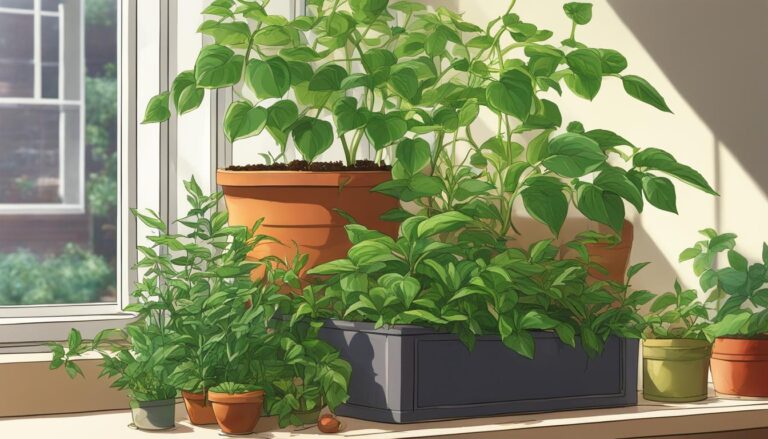
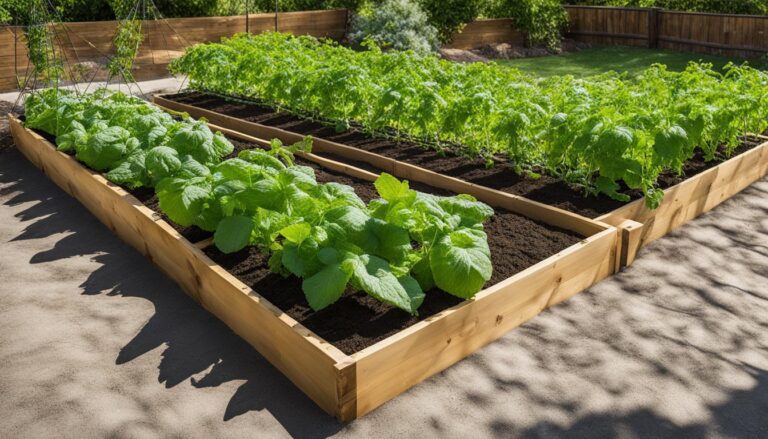
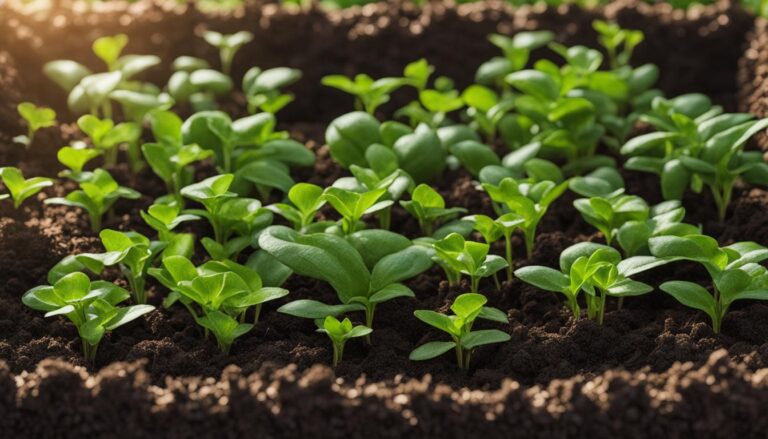
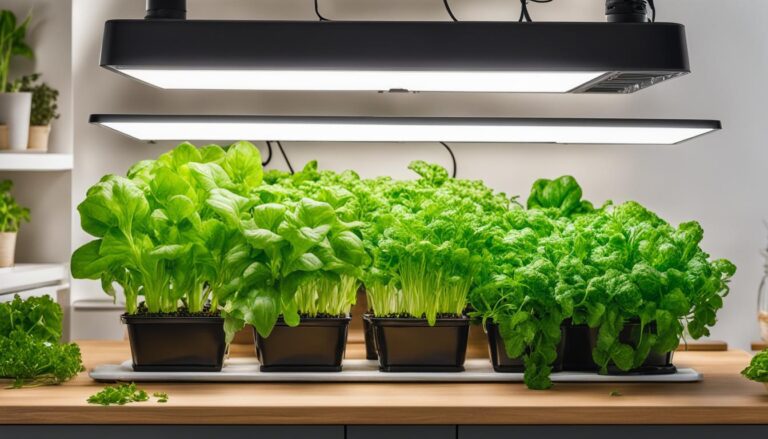
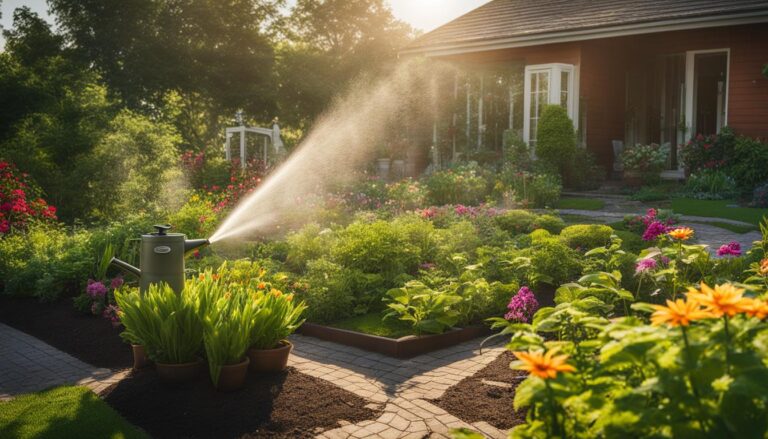
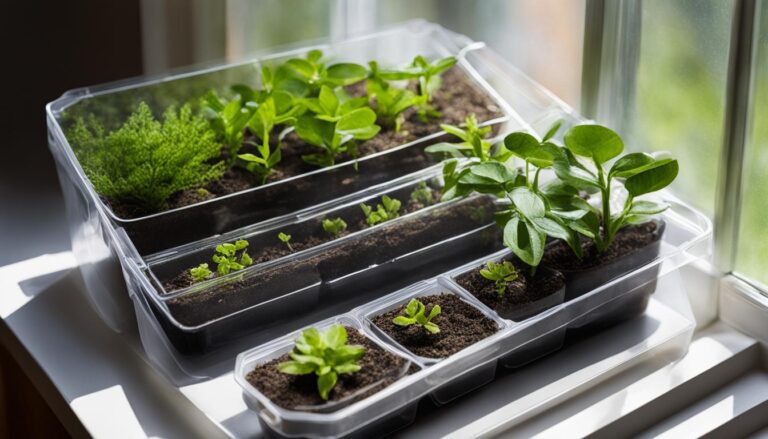
4 Comments
Comments are closed.